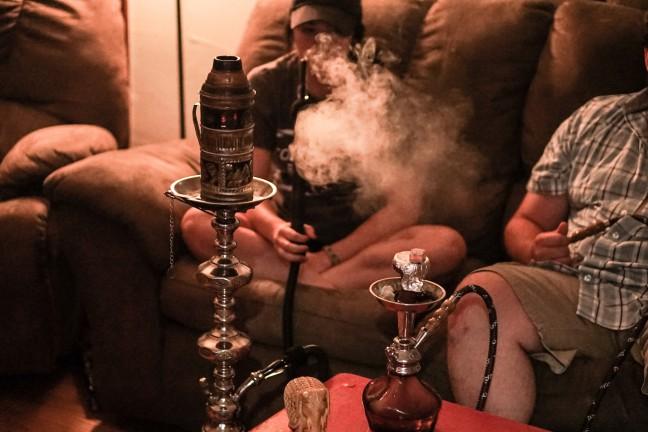Whether watching Drake in his “Started from the Bottom” video or simply strolling down State Street on a weeknight, hookah — with its elegant instruments producing fruit-scented clouds — seems like an increasingly favored commodity among millennials.
But despite hookah’s rising popularity, and the several downtown smoke shops like Azara, Madison boasts almost no lounges.
In fact many potential customers call Azara looking for hookah lounge prices and amenities, not realizing their Madison location only sells the accessories, employee Karla Rivera said.
“I just tell them that we’re not an actual hookah lounge, we’re just a shop,” Rivera said. “It’s confusing because it says we’re a hookah lounge online, but we’re not.”
In response to obvious demand, Azara has made past attempts to seize this business opportunity.
“We did [try to open a lounge],” Rivera said. “But, it got denied because of the ordinance.”
The ordinance is actually a statewide, anti-indoor smoking law that was implemented in 2004, Ald. Mike Verveer, District 4, said. It aims to prevent the negative health effects of smoking tobacco, he said.
Since most hookah lounges fall under the law, they have since been prohibited. But, thanks to some loopholes, a few businesses have been making do.
For example, Palmyra Mediterranean Grill — a popular State Street restaurant — began serving hookah to patrons about three weeks ago.
Palmyra serves hookah to patrons on their sidewalk patio, working around the ordinance.
“People just kept on asking [for hookah] and we kept on promising we were going to make plans to do it,” owner Abdul Lababidi, said.
Another institution found a loophole as well; Mediterranean Hookah Lounge and Café on the west side offers the sweet smoke as one of their primary services.
Owner and co-founder Tommy Hanna and his brother have owned the restaurant for 21 years, but didn’t add the hookah element until 2007.
“We wanted to bring our Lebanese culture with Mediterranean food, hookahs and belly dancing [to Madison],” Hanna said.
As for selling hookah to patrons despite the state tobacco law, Hanna said the café was a pre-existing business prior to the smoking ban.
This is similar to the reason why old cigar lounges still exist in Madison, Verveer said.
“Statewide, if you’re a cigar bar that was in existence when the state statute was adopted, then you can be open as long as you want,” he said.
And it may not just be the loopholes that attract hookah users, but the indoor smoking ban’s inability to prevent tobacco use in the first place.
Thus far such anti-tobacco policies, while limiting standard cigarette smoking, haven’t prevented tobacco consumption among teens and young adults in other forms, namely hookah and vapes.
According to a study conducted by the National Institute of Health, in 2013 one in five college students reported smoking hookah. The study also claims that this may be due to students believing smoking from a “water-pipe” diminishes tobacco’s negative effects.
Indeed, the hookah scene has the undeniable potential to flourish in Madison. Considering the frequent requests among Azara’s customers, the response to similar requests on behalf of Palmyra and Mediterranean Hookah Lounge and Café’s success, it would appear that the isthmus should have minty smoke always obscuring the Capitol building.
But, unless the ordinance is lifted, hookah lovers will have to continue enjoying their loopholes and personal accessories.








